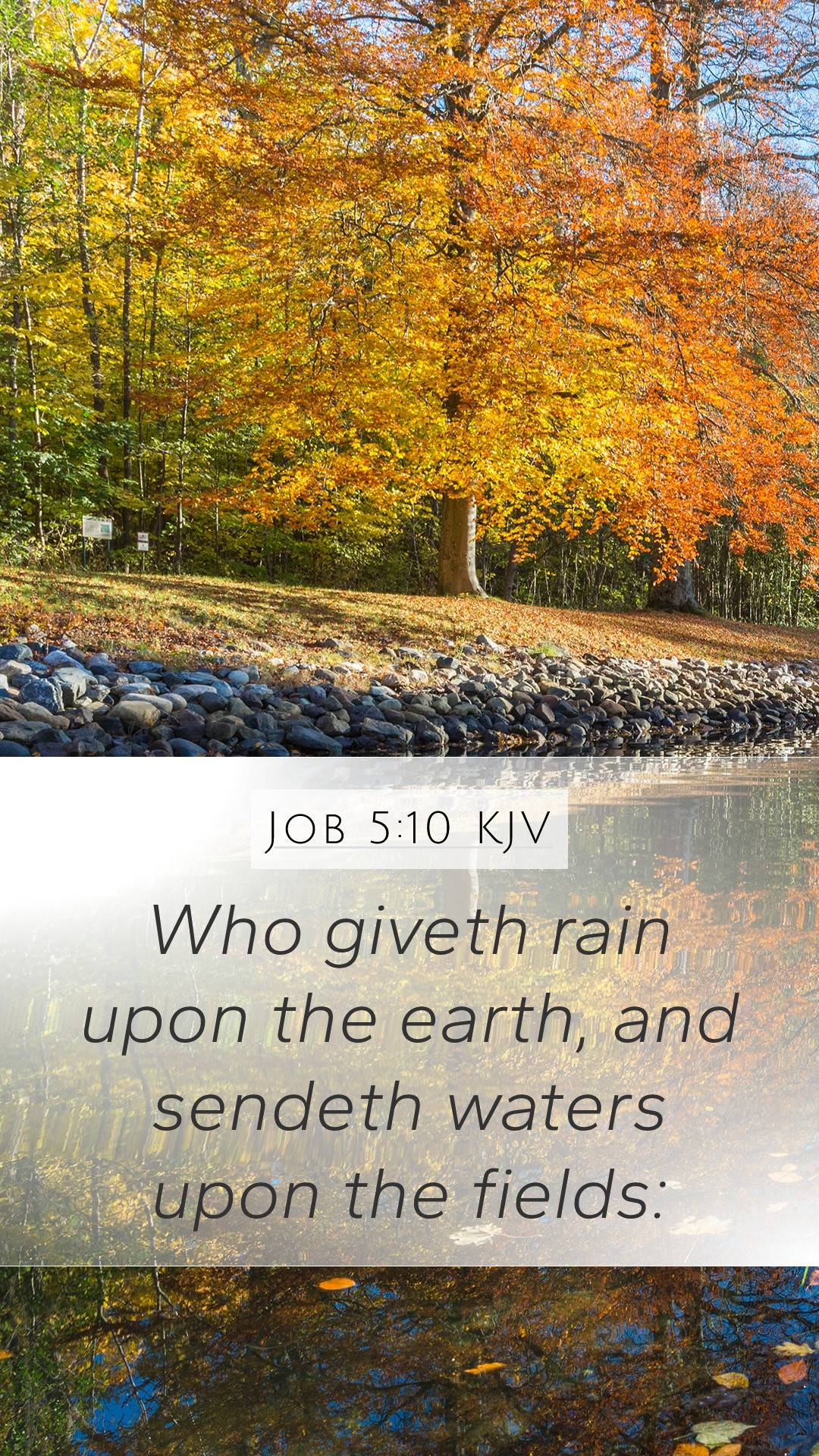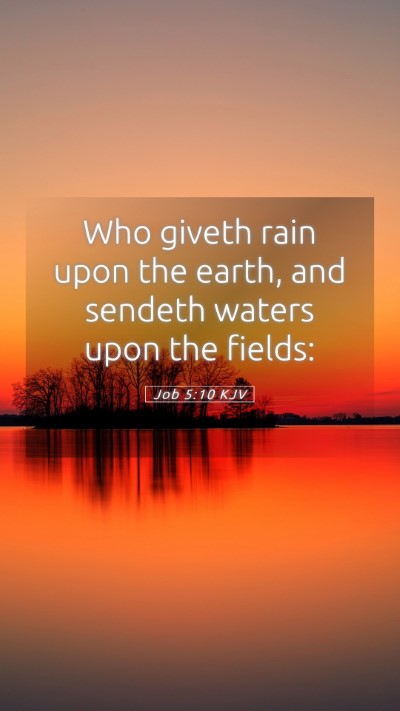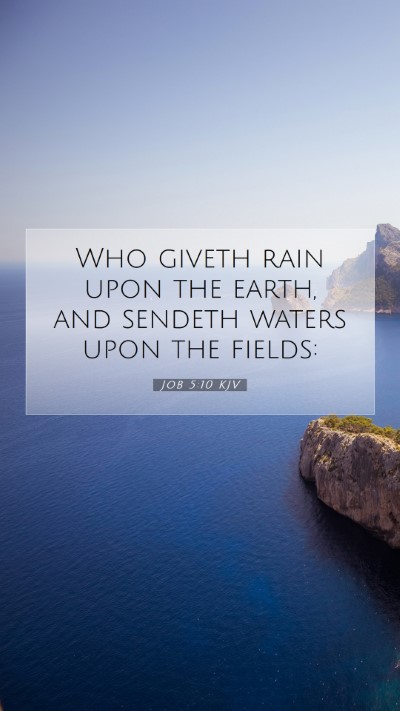Old Testament
Genesis Exodus Leviticus Numbers Deuteronomy Joshua Judges Ruth 1 Samuel 2 Samuel 1 Kings 2 Kings 1 Chronicles 2 Chronicles Ezra Nehemiah Esther Job Psalms Proverbs Ecclesiastes Song of Solomon Isaiah Jeremiah Lamentations Ezekiel Daniel Hosea Joel Amos Obadiah Jonah Micah Nahum Habakkuk Zephaniah Haggai Zechariah MalachiJob 5:10 Meaning
What is the meaning of Job 5:10?
Who giveth rain upon the earth, and sendeth waters upon the fields:
Job 5:10 Bible Verse Meaning
Understanding Job 5:10
Job 5:10 states: "Who gives rain on the earth, and sends waters on the fields." This verse emphasizes God's sovereignty over nature and His provision for the earth. Below, we will delve into a detailed interpretation of this verse using insights from notable commentaries.
Bible Verse Meanings
The meanings of Bible verses often reflect multipurpose teachings, and Job 5:10 is no exception. This verse illustrates God's role as both the creator and sustainer of creation, showcasing His power and goodness in providing for His creation.
Bible Verse Interpretations
Interpretations of Job 5:10 can vary, but a consistent theme is God's omnipotence and benevolence. Matthew Henry notes that the provision of rain is not merely a natural occurrence but a divine action. Albert Barnes elaborates on the significance of rain in the agricultural society of Job's time, indicating that it was essential for growth and sustenance.
Bible Verse Understanding
Understanding Scripture often requires a multifaceted approach. In Job 5:10, the mention of rain relates not just to physical sustenance but also to the spiritual nourishment that God provides. Adam Clarke asserts that particularly in times of despair, this reminder of divine provision is particularly comforting.
Bible Verse Explanations
The explanation of Job 5:10 can be approached from two angles: the historical and the theological. Historically, Job's context involves suffering and loss, harkening to the importance of recognizing God’s continuing provision even amidst hardships. Theologically, it speaks to the character of God as a provider who brings life and renewal through natural means.
Key Insights from Public Domain Commentaries
- Matthew Henry: God sends rain as a blessing and sign of His love and provision...
- Albert Barnes: Emphasizes God’s active role in the agricultural cycles that sustain life...
- Adam Clarke: Compares rain's necessity for the fields to God's spiritual provision for believers...
In-Depth Bible Verse Analysis
Further analysis of Job 5:10 involves the implications behind water and rain in the Bible. Water is frequently used as a symbol for the Holy Spirit and divine blessings. In proclaiming God as His source, Job's friend, Eliphaz, addresses the need for humility and a recognition of human dependence on divine provisions.
Biblical Exegesis
Exegesis involves drawing out the meaning of the text through careful study. Job 5:10 exemplifies the connection between creation and the Creator, highlighting that God's control over the natural world is a source of comfort for believers facing life's trials.
Application of Bible Verses to Daily Life
This verse encourages believers to trust in God's goodness and timing. Just as rain is necessary for the vitality of the earth, so too is God's provision vital for spiritual life. This brings solace to those in distress and motivates them to acknowledge God in their everyday lives.
Cross References
- Psalm 65:9-10 - God's provision of water to the earth...
- Matthew 5:45 - God’s grace in providing for the righteous and unrighteous...
- James 5:7 - Patience and reliance on God until the harvest...
Conclusion
In conclusion, Job 5:10 articulates a profound truth about God's sustaining power over creation. Through the studies and insights gathered from various commentaries, it becomes evident that understanding such verses enriches our approach to the Scripture, deepens our faith, and enhances our Bible study insights.


